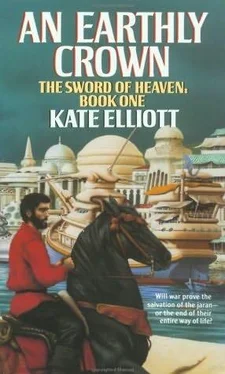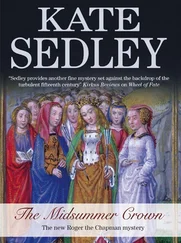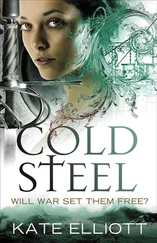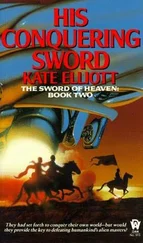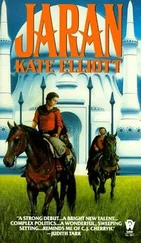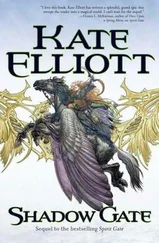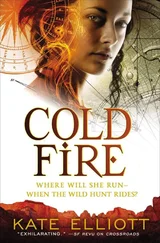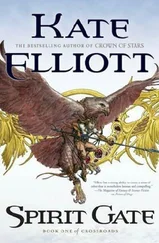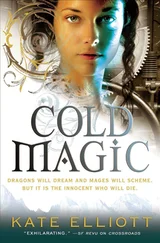Kate Elliott - An earthly crown
Здесь есть возможность читать онлайн «Kate Elliott - An earthly crown» весь текст электронной книги совершенно бесплатно (целиком полную версию без сокращений). В некоторых случаях можно слушать аудио, скачать через торрент в формате fb2 и присутствует краткое содержание. Жанр: Фантастика и фэнтези, на английском языке. Описание произведения, (предисловие) а так же отзывы посетителей доступны на портале библиотеки ЛибКат.
- Название:An earthly crown
- Автор:
- Жанр:
- Год:неизвестен
- ISBN:нет данных
- Рейтинг книги:4 / 5. Голосов: 1
-
Избранное:Добавить в избранное
- Отзывы:
-
Ваша оценка:
- 80
- 1
- 2
- 3
- 4
- 5
An earthly crown: краткое содержание, описание и аннотация
Предлагаем к чтению аннотацию, описание, краткое содержание или предисловие (зависит от того, что написал сам автор книги «An earthly crown»). Если вы не нашли необходимую информацию о книге — напишите в комментариях, мы постараемся отыскать её.
An earthly crown — читать онлайн бесплатно полную книгу (весь текст) целиком
Ниже представлен текст книги, разбитый по страницам. Система сохранения места последней прочитанной страницы, позволяет с удобством читать онлайн бесплатно книгу «An earthly crown», без необходимости каждый раз заново искать на чём Вы остановились. Поставьте закладку, и сможете в любой момент перейти на страницу, на которой закончили чтение.
Интервал:
Закладка:
David saw no passage through the huge curtain of water, but Charles walked steadily toward it, picking his way along the labyrinthine paths until the three men and the Chapalii steward came to the wall of water. Charles lifted the crystal wand. The waterfall parted.
David gaped. It simply parted, by no agency he could see. Water still rained down over their heads, but an invisible barrier forced it to either side, allowing them access to whatever lay within. Charles led the way. The steward followed him, and David went next, letting Marco take the rearguard.
What lay within proved to be a hall as vast as a cathedral. Their footsteps echoed as they crossed the hall's expanse to a far door. They passed through the door into a garden lined with columns and thence into a marble-fronted basilica that transmuted, surprisingly, into an octagon, a two-storied building with a mosaic floor and somberly glowing mosaic walls portraying austere, gaunt figures. Within the greater octagon, almost floating inside it, stood an interior octagon of double arches. Within the central octagon two couches sat on the mosaic floor.
On one couch, a figure reclined. It sat up, seeing their party. Charles marched them under one of the arches-banded with three colors of stone-and sat himself down on the couch opposite their host. David and Marco placed themselves behind him. The steward crossed to stand beside Tai Naroshi.
The two dukes regarded each other in silence. Tai Naroshi looked like all other Chapalii: pale as ice with a wisp of yellow hair; tall, thin, humanlike in his symmetry, but not human at all. He wore a robe of palest orange that seemed to drape itself artistically around his form, according to his movements, by some unrelated gravitational field.
Charles placed the wand across his knees.
They waited.
Then, to David's astonishment, a mist steamed up under one of the arches and coalesced into three seated figures: Owen Zerentous, Ginny Arbha, and an interviewer. They looked so real that they could have been there in person, except that they had appeared so abruptly.
"We ought all to remember," Owen was saying, "that the line between barbarism and civilization is fluid. Ritual is a constant in all human society. Theater is simply a more refined, and perhaps even a more confined, elaboration of primitive ritual events. Certainly my use of the word 'primitive' is a subjective response based on our bias against pretechnological culture."
Naroshi raised one hand, and the figures froze. They then passed through a rapid succession of expression and angles, as if their conversation was accelerated. Naroshi lowered his hand, and the interview continued.
"To find cultures that have never seen theater before," Owen said, clearly in answer to a question. "Human cultures, that is. We haven't seen that for centuries on Earth, or in any of the human cultures in the League, for that matter. Does theater work as a ritual for any human culture? Even one grown and bred on a planet other than our own? Are these aspects of the human condition, are the emotions that theater engenders, universal to our genetic coding? And if they are, where does the real translation take place: in the words, or in the gestures? In the letter, or in the spirit? That's what we're going to Rhui to find out."
Still talking the figures imploded into mist and evaporated.
"Tai Charles," said Naroshi, acknowledging his visitor.
"Tai Naroshi," said Charles, with the exact same lack of inflection, acknowledging his host.
"You undertake a journey," said Naroshi.
"I am honored by your interest," said Charles.
"Rhui is a primitive world. Certainly it is not a planet where any civilization can be found."
"It is interdicted," agreed Charles, and David had to wonder what Charles was thinking, what message he meant Naroshi to read from this colorless conversation. It is interdicted, and I know damn well you sent agents down onto Rhui in direct defiance of that interdiction.
"Yet still you intend to travel there."
In the muted light within the interior octagon, David could still detect fleeting colors chasing themselves across the white skin of the steward, colors that reflected his emotions as he listened to this conversation between the two noblemen. But the duke, Naroshi, remained as pale as frost. No hint of color tinted his skin. Were the high nobility genetically superior or simply taught techniques from an early age with which to control the shadings of their skin? No human knew.
"Still I intend to travel there."
"With these others, some of whom are artisans."
Rather than replying, Charles simply inclined his head.
' 'May I hope that you will still consider my sister for the design of the mausoleum for your sister?"
"Tai-en, I have just returned from the palace. Indeed, from the presence of the emperor himself. I have not yet considered what I intend to do to honor my sister."
"Ah," said Naroshi, and paused. David strained to see if any color stained the duke's face, but he could discern none. On the distant walls, color shifted along the mosaics, moving subtly along the wall and lightening and darkening the images in slow waves. "The Keinaba house. I am surprised that you would take in a dishonored house.''
"Yes," agreed Charles. "I did not know that you were interested in theater.'' He extended a hand and gestured in the direction of the arch under which Owen and Ginny had, for that brief time, appeared.
"Many of us are interested in Rhui, Tai-en. I am not alone in my interest in such a rich planet."
"No," agreed Charles, "I do not suppose you are." From this angle, David could only see the back of Charles's head; he could not observe his expression, and he could not hear any emotion in his voice. Silence followed the remark. The two dukes seemed to have reached a stalemate.
Into their silence, a humming rose, soft, implacable. The air began to shimmer. The wand laid over Charles's knees shone all at once with a brilliant light, picked up a high-pitched overtone from the hum, and quite simply dematerialized.
Both dukes stood up at once.
Naroshi spoke a curt command to the steward, and the Chapalii servant turned on his heel and hurried away. But even as the steward crossed under the double arches, the arches themselves vanished. The air shimmered, melding, blending; the whole huge chamber melted away and the grand architecture was overwhelmed by another locale.
The change occurred over seconds-minutes, perhaps-but it was hard to keep track of time when you were floating in immaterial space, in a shifting void. David caught a glimpse of the mosaic wall, of a hollow-eyed man draped in robes splintered by a sudden bright light, and then it, too, was gone. They stood in a chamber so vast that David could not see walls but felt the presence of still air enclosing him. In such space there ought to be a breeze, some sense of the air being alive; there was not.
He stood on a silver floor that shaded to translucence and then became transparent, and he stared down, dizzy with vertigo, at an expanse of towers and avenues laid out so far below that this floor must have been hundreds of meters above the ground. Darkness swept over and swallowed the city below like a wave and David could only mark each tower now by the single light at its tip. Or were they now stars? Was he standing above space itself, staring down into the vast deeps? He tilted his head back, to look up, and got dizzy, felt the galaxy whirl around him. Staggered a little, steadying himself with a touch on Marco's arm.
Now he felt like the floor was moving, or that he was; he couldn't be sure which. Only the two dukes appeared stable to his eyes. He fixed on Charles.
The air shone in front of Charles, took on weight and coalesced into matter. A braid of silver fire hung in the air. David saw the shift as gravity grabbed hold of its substance. The air stilled. The braid fell. But Charles caught it before it could touch the floor. David saw how heavy it must be by the way it weighted down Charles's arm. "Seal the braid of fealty."
Читать дальшеИнтервал:
Закладка:
Похожие книги на «An earthly crown»
Представляем Вашему вниманию похожие книги на «An earthly crown» списком для выбора. Мы отобрали схожую по названию и смыслу литературу в надежде предоставить читателям больше вариантов отыскать новые, интересные, ещё непрочитанные произведения.
Обсуждение, отзывы о книге «An earthly crown» и просто собственные мнения читателей. Оставьте ваши комментарии, напишите, что Вы думаете о произведении, его смысле или главных героях. Укажите что конкретно понравилось, а что нет, и почему Вы так считаете.
